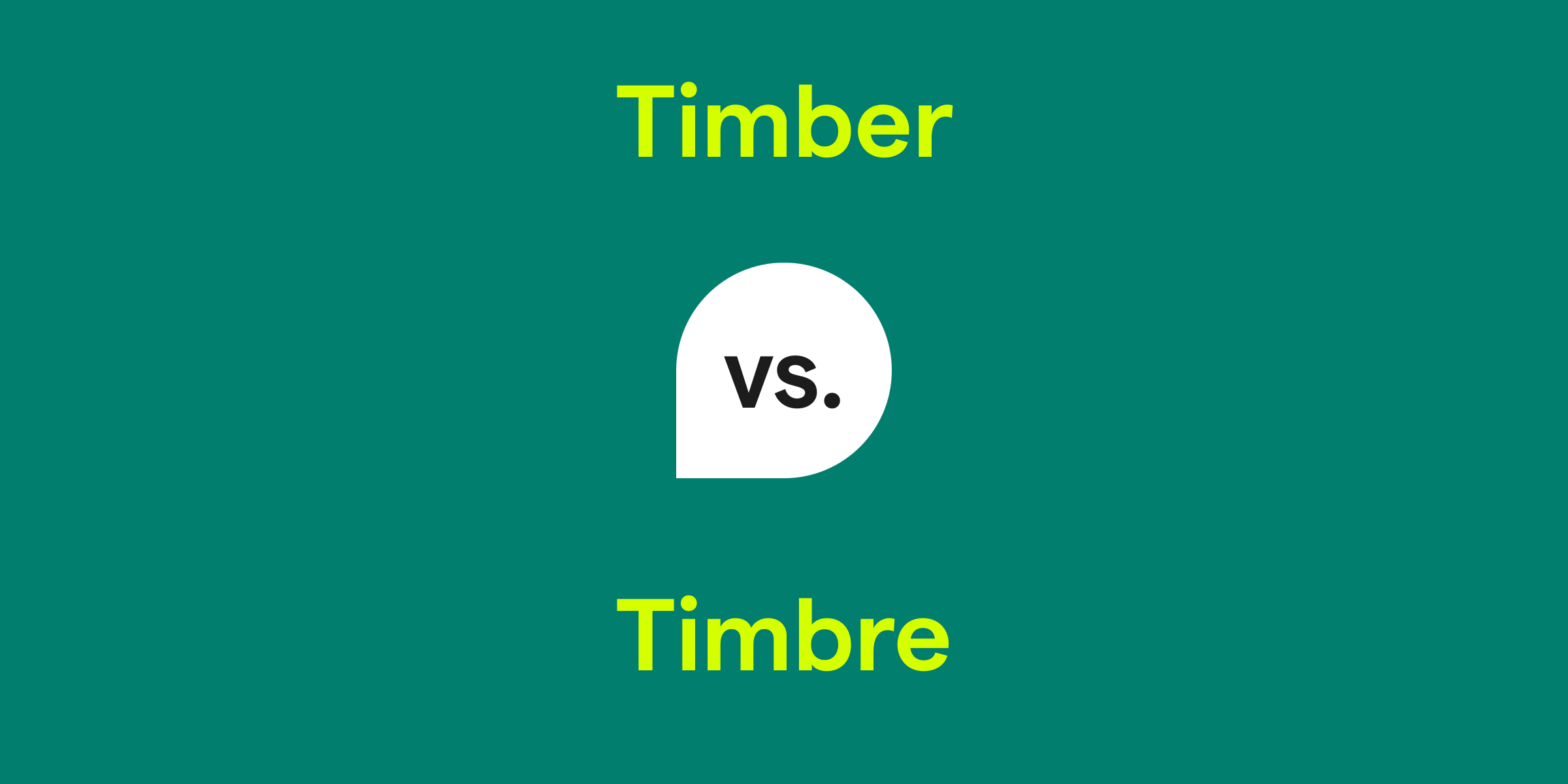Timber vs. Timbre: What's the Difference?
Timber and timbre are two words that sound similar but have distinct meanings. Timber refers to wood that has been prepared for use in building or carpentry. It's a material fundamental to construction and woodworking. On the other hand, timbre describes the quality or tone of a sound that distinguishes it from other sounds of the same pitch and volume. It's a term often used in music and acoustics to explain why different instruments or voices sound unique despite playing the same note.

How do you use the word timber in a sentence?
The word timber is used when talking about wood that is intended for construction or carpentry. Whether you're discussing the materials required for building a house or creating a wooden sculpture, timber is the term to reflect the wood's prepared state ready for use. It can also be used metaphorically to describe a loud, deep sound reminiscent of a falling tree.
Examples of timber in a sentence
- The old barn was constructed with rugged timber that's stood for decades.
- After the storm, there was so much timber scattered around, it took a week to clean up.
- We could hear the loggers in the distance shouting 'Timber!' as the trees came crashing down.
How do you use the word timbre in a sentence?
The word timbre is primarily used in contexts involving sound and music to describe a particular quality or character of a sound that makes it unique. When assessing voices, musical instruments, or sounds in general, timbre is the word that captures the texture or color of the sound.
Examples of timbre in a sentence
- The warm timbre of the cello added a melancholic touch to the symphony.
- Each singer's voice has a distinctive timbre that can be recognized by avid listeners.
- The timbre of a sound is as important as its pitch and volume in music production.
Timber and timbre definition, parts of speech, and pronunciation
Timber definition:
Timber is a noun that refers to wood that has been processed and is ready to be used in construction or carpentry.
Timber parts of speech:
Timber pronunciation:
Timber is pronounced as /ˈtɪmbər/.
Timbre definition:
Timbre is a noun describing the quality or texture of a sound, especially a musical note or voice, that distinguishes it from others.
Timbre parts of speech:
Timbre pronunciation:
Timbre is pronounced as /ˈtæmbər/.
Timber is a noun that refers to wood that has been processed and is ready to be used in construction or carpentry.
Timber parts of speech:
- Noun: The timber industry is vital to the country's economy.
Timber pronunciation:
Timber is pronounced as /ˈtɪmbər/.
Timbre definition:
Timbre is a noun describing the quality or texture of a sound, especially a musical note or voice, that distinguishes it from others.
Timbre parts of speech:
- Noun: The unique timbre of each instrument contributes to the orchestra's overall sound.
Timbre pronunciation:
Timbre is pronounced as /ˈtæmbər/.
Timber vs. Timbre in a nutshell
While timber and timbre share phonetic similarities, their meanings are quite different. Timber pertains to processed wood ready for building and carpentry, and represents a tangible resource in the construction world. Timbre, alternatively, relates to the unique sound characteristics that allow us to differentiate between various instruments and voices, playing a crucial role in the realm of audio and music. One word builds structures, the other builds soundscapes.
Get AI Writing Assistance Wherever You Type
Make sure your vocabulary is on point and every punctuation mark is in the right place, no matter where you’re working. Grammarly works across more than 1 million websites and apps so you can improve your writing without copying, pasting, or breaking focus.

More Commonly Confused Words
Interest piqued? Pore (not pour) over other commonly confused words to help your writing reach peak (not peek) performance.